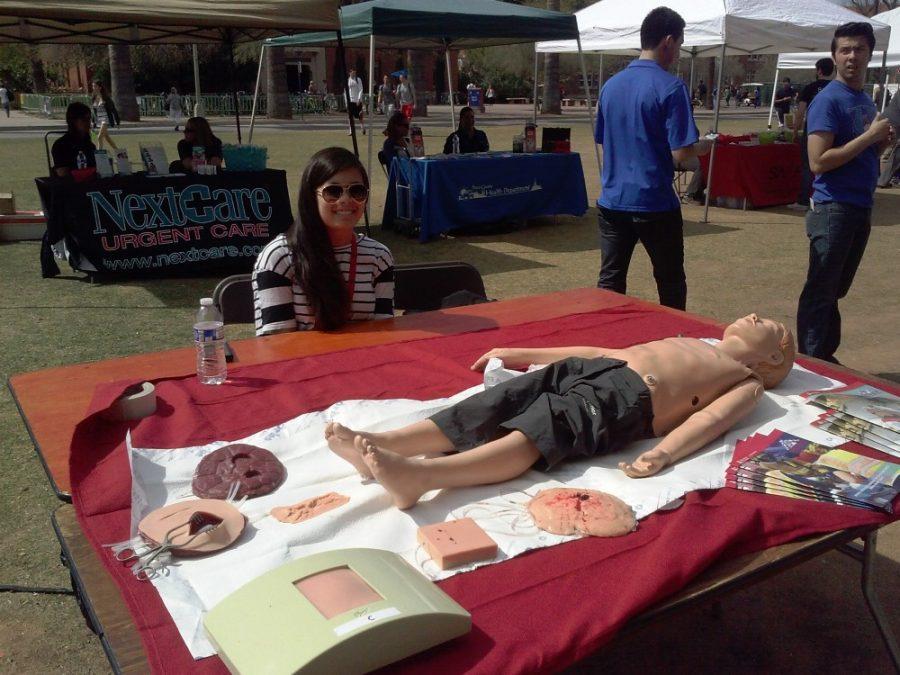The UA branch of Health Occupations Students of America sponsored its first campus health fair on the UA Mall on Tuesday.
The health fair involved both on- and off-campus organizations, including UA Active Minds, Fab-U-Life, NextCare, Planned Parenthood and others. HOSA is a national organization endorsed by the U.S. Department of Education.
According to HOSA members attending the event, the UA branch of HOSA has been active for three years now and is affiliated with the College of Medicine. Although the group’s primary goal is to promote careers in health care, it shares the goal of raising awareness about issues of health with other local organizations.
“We wanted to make sure we reached out to other organizations not on campus and from all of Tucson,” said Marco Gallegos, a junior studying physiology and Spanish and the president of HOSA. “Health is important and we want to provide this information, as well as volunteer opportunities, to students.”
The health fair gave students the chance to obtain health-related information from organizations’ booths, as well as to participate in hands-on activities such as the UA Microbiology Club’s cooking safety demonstration. The Arizona Simulation Technology and Education Center also offered a hands-on demonstration about mock-emergency responses using an artificial body model.
Jose Gamez, a biomedical engineering freshman, said these activities benefit students interested in a variety of fields.
“I think the most important aspect of these activities is that students are learning what goes on in the actual field,” Gamez said. “Since I’m a freshman, they have helped me decide what major I wanted to go into. They make topics more interesting, other than just learning things in class.”
Though students may feel that they can always access information through the Internet, Gallegos
said, by hosting off-campus organizations, students are more inclined to access resources in person.
Ben Johnson, a veterinary sciences junior, said that convenience could also be a factor that drives students to health fairs.
“It’s easy accessibility,” Johnson said. “Students can search on the Internet all day if they want, but if the information is right there in person and they can get free condoms, they’ll be more likely to get it. Some students may feel uncomfortable with being seen getting help on campus … [but] I think it’s super helpful to be able to talk to someone in person.”









